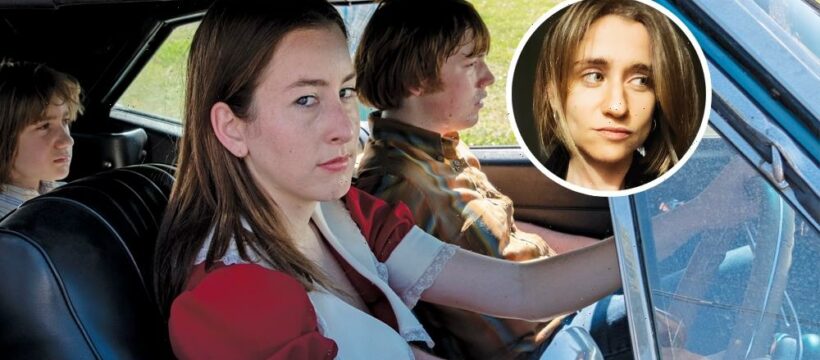For Variety‘s Writers on Writers, Eve Barlow pens a tribute to “Licorice Pizza” (screenplay by Paul Thomas Anderson).
You can smell the acne on Cooper Hoffman’s chin. You can feel the heat on the pavement as Alana Haim sprints toward a feeling. You can taste the burgers from the drive-thru and the martini at the clubhouse bar. You can almost touch the life in San Fernando Valley that Paul Thomas Anderson remembers from the 1970s, or dreams that were closer to the version he realizes on screen.
The way Anderson’s latest ode to the part of L.A. in which he was raised is brought to life speaks to a filmmaker who wants to embrace a less-complicated world, a slower world, a more meaningful world, a world in which you had to remember someone’s phone number if you wanted to get to know them, a world in which cigarettes were still considered a rite of passage and sushi was still new, a world in which airplanes were an exotic experience, a world in which a 15-year-old boy could order “two Cokes” in order to seem grown-up to a girl 10 years his senior.
In “Licorice Pizza,” Anderson finds hope in the Valley again. Gone are the plagued, alienated, lonely characters; instead are a group of restless young things with schemes and plans to procrastinate from their most questionable, most illogical, yet most victorious feelings for one another. Anderson’s main muses are his Valley peers Haim, the L.A. rock trio who are from the 1970s in spirit, but grew up in the ’90s.
The three women keep their own names and together with their parents play themselves like a Jewish version of “The Virgin Suicides” by way of “Fiddler on the Roof,” i.e. less death and listlessness, more meshuggas and hollering. It’s an artful representation of assimilated Jewish life that is sorely missing from pop culture.
Instead of using Jews as figures of mocking or villainy, “Licorice Pizza” weaponizes the family’s American-Israeli roots with guts, integrity and pride. Even more wholesome is Cooper Hoffman’s debut, which carries his late father’s legacy without stifling his own star potential. It’s a near-perfect cinematic escape.
Barlow is a pop culture editor and writer.
Source: Read Full Article
